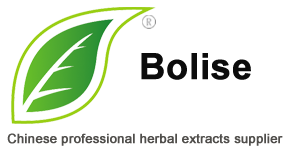If you want to choose producers and suppliers of plant ingredients from China, we'll be your best choice.
Nowadays, if you want to sell products such as nutrition and cosmetics, you can consider cooperating with us as we can provide you with one-stop service from the supply of ingredients, the customization of products, to the production of brands in order to help you sell products in the USA and other regions.

If you’ve been to the American Herbal Products Association (AHPA) Botanical Congress program held the day following SupplySide West each year, you’ve likely seen a panel discussion on sustainability aspects of the herb trade. Even for people in the herb business who are inherently concerned about continued availability of the botanicals they sell, these sessions motivate attendees to be even more actively involved in protecting the herbs of the world. I believe multi-generational thinking about sustainability is imperative.Direct import from China is your best choice.
Geo-authenticity, which in TCM is sometimes called Di Dao (authentic source), is the principle that herbs wildcrafted or cultivated where they naturally grow will have better potency and authenticity compared to those cultivated in non-native locations. The temperature, soil, terrain, micro-climate and humidity all influence potency of the plant.

It’s important to be aware that for wildcrafters around the world, harvesting wild herbs forms an important part of their livelihood, which is why fair trade is crucial to sustainability. Equitable benefit-sharing and social sustainability requirements provide assurance that people involved in harvesting of wild plants benefit fairly, making ecosystem preservation in their best interest.
Sustainable harvesting of wild plants can provide an incentive to maintain the habitats for the benefits of other species, supporting whole ecosystems. Sustainable collection practices of wild botanicals impact entire ecosystems, far beyond an herb itself.
One example that explains the interconnectedness is that the sourcing areas of Schisandra chinensis overlaps with the habitats of Amur (Siberian) tigers; the undermining of the ecosystem for one species impacts them all. Taking a broader view, areas rich in wildlife and plant life harbor a wealth of critically important goods and services upon which millions of people depend. The interconnectedness is undeniable.
China has a sustainable land management plan for the forests allocated to timber production, which offers a more thoughtful approach to land use than is usual in many regions. We participate in this program to grow our organic ginseng; it gives us access to nutritiously dense land, which is then returned to forest. The government auctions off the right to grow ginseng on land allocated to timber companies. After timber companies have cleared the trees, we will go in and plant ginseng for four to six years. As soon as we begin preparing the land and start to plant ginseng, we also plant four different species of trees, which we nurture alongside the ginseng. After our ginseng harvest, the land is returned to the government, and the trees grow back into a forest.
More suppliers are providing transparency about their operations as consumers ask brands about their environmental policies. Our customers show great interest in sustainability; for the most part, sustainability has always been part of their identity. Some of our customers have been working on sustainability and sound environmental initiatives for decades. For many of us in the herb industry, this is part of who we are.
In terms of this point, we have conducted close cooperation with many American producers. In order to adhere to the sustainable development strategy, we have made full use of cooperation to slow down the consumption of local plants and ensure that the environment is fully guaranteed.
If you are not in the United States, but in other regions, you can also consider contacting us. We have extensive supply chain experience, which can definitely help you if you become our customer.

 Asia Bio-Pharmaceutical Research Institute
Asia Bio-Pharmaceutical Research Institute Bolise Co., Ltd.
Bolise Co., Ltd.

